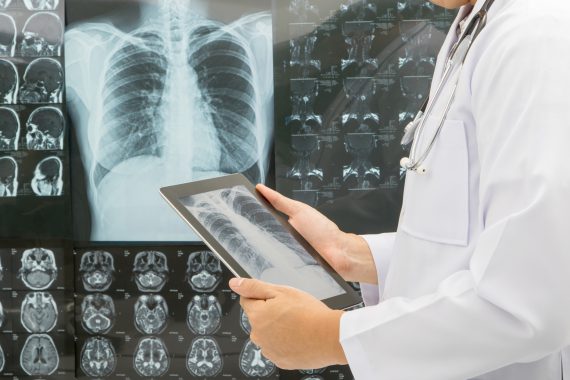Giving GPs direct access to diagnostic tests for cancer does not mean patients are diagnosed quicker, despite them being tested faster, researchers have found.
The research team from the University of Oxford carried out a systematic review to assess the effectiveness of GP direct access (DA) testing in adults, and compared the results with testing ordered by specialists.
They saw that referral to test time was halved by giving GPs direct access, but communication issues and waiting lists for further investigations held up diagnosis.
This comes after NICE recommendations in 2015 said that GPs should have direct and rapid access to tests for suspected cancer, a call which was renewed in 2016.
Researchers set out to establish the proportion of patients diagnosed with cancer through DA testing – such as Gastroscopy, MRI, CT and Colonoscopy – the time to diagnosis, and suitability of DA investigations.
The paper, published in the BJGP, highlighted that while GPs are the ‘gatekeepers to secondary care and specialist testing’, this can cause diagnostic delays.
The team identified over 2,000 papers, before narrowing it down to 60, and then pooled and analysed the data quantitatively where possible.
The authors found ‘no significant difference’ in proportion of patients diagnosed between GP DA referrals and patients who consulted a specialist.
The waiting time for testing was also much shorter in patients seen by GPs with direct access to testing (mean 31.9 days), compared with those who had to be referred to a specialist for testing (mean 76.6 days).
But despite this reduction, there was no corresponding reduction in time to diagnosis.
The researchers attributed this to waiting lists for further investigations, poor communication between specialties, and misunderstandings about who was responsible for arranging onward referral.
Referrals for testing were also more likely to be deemed appropriate when made by consultants (80.9%) compared with GPs (66.4%), although the researchers said the difference was not significant.
The authors said: ‘This review has re-emphasised the importance of a whole-pathway redesign, and the need to focus efforts to reduce diagnostic delay on all intervals between symptomatic presentation to GP and final diagnosis.’
A London NHS Trust which changed its lung cancer pathway last year to give GPs direct access to CT scans for suspected lung cancer, has seen waiting time halved, with patients being treated and given the all clear faster.
Pulse October survey
Take our July 2025 survey to potentially win £1.000 worth of tokens













